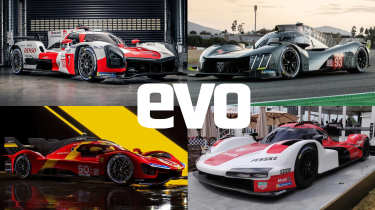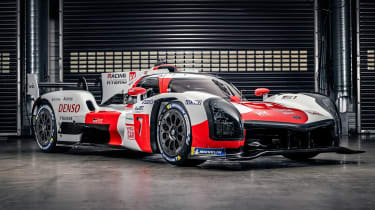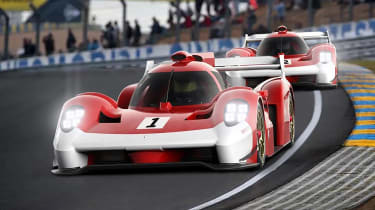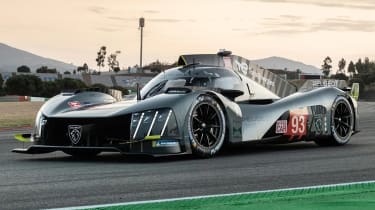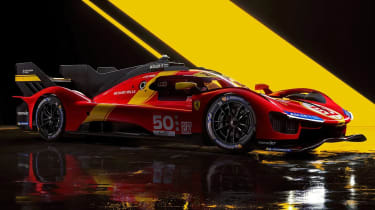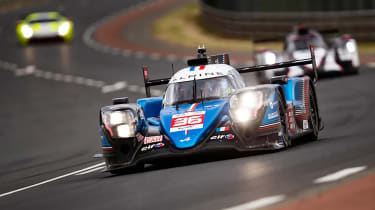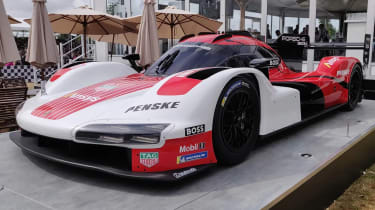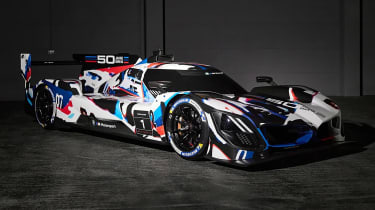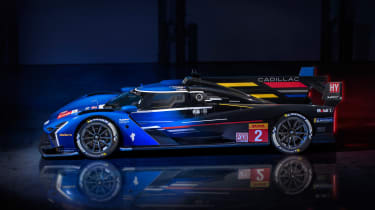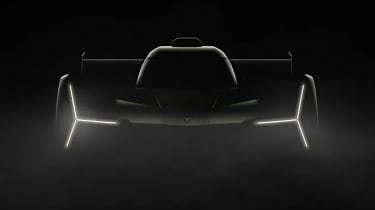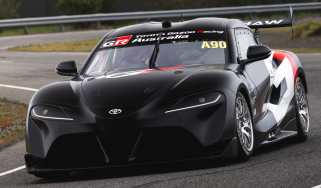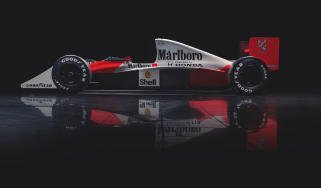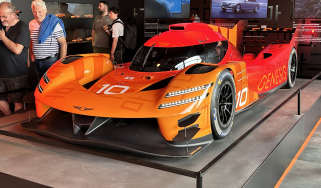2023 WEC and IMSA season guide – Le Mans Hypercar and LMDh contenders
With a new era of endurance car racing upon us, we run down the next-generation contenders and rules
After years of discussions, negotiations, and plenty of arguments behind closed doors, the future of sportscar racing finally looks to be on a secure footing. It comes with a multitude of manufacturers joining both the World Endurance Championship (WEC) and the American IMSA series in 2023 and 2024, with these series encompassing the blue riband events such as the 24 Hours of Le Mans and Daytona, and the Sebring 12 Hours.
Before we get into the individual cars, let’s have a recap of the rules. Sweeping changes have been made to all the categories that make up the top level of sportscar racing, with the current LMP2 rules continuing until 2025, and GTE – that’s the 911s, Aston Martin Vantages and so on – making way for a GT3-based class in 2024. Many manufacturers have already revealed their new GT3-class racers including Ferrari’s 296 GT3 and Porsche’s 911 GT3-R. Corvette will also have a C8.R-based contender that will be revealed later in 2024. This will see a vast increase in the number of marques represented at the lower end of the grid, given the multitude of GT3 cars already competing around the world.
> FIA Le Mans 24 Hours 2023 – a guide to the year’s biggest endurance race
However, it’s the top class that is taking centre stage for now, and the key thing to know is that there are now two main types of car: Le Mans Hypercar (abbreviated to LMH) and Le Mans Daytona Hybrid (LMDh). No, they’re not the most catchy of category descriptions, but the idea is that cars from both classes should be vying for outright wins at events such as the Le Mans 24 Hours, and both can compete in both the FIA WEC series and IMSA in the USA.
LMH is the result of the long-held desire to create a new top tier of sportscar racing that involves more manufacturers, with cars that reflect each brand’s design characteristics. Naturally, there’s a strong emphasis on hybrid technology, but also the flexibility to entice brands back in with a route that suits them.
Essentially, LMH is open to both prototypes and road car-based machines with a combined power output of 671bhp and a minimum weight of 1030kg. Going down the hybrid route is optional, but if adopted can contribute no more than 268bhp; it can be deployed on the front axle, meaning four-wheel drive, but can’t be deployed at lower speeds, to stop hybrid LMH cars having a significant advantage out of slow corners or in wet conditions.
Think of LMDh as a cut-price route into challenging outright for race wins. While LMH budgets should be considerably lower than those under the old LMP1 rules, LMDh uses an LMP2 chassis from one of Dallara, Ligier, Multimatic or Oreca, and a standardised hybrid rear axle and gearbox combination developed by Bosch, Williams Advanced Engineering and Xtrac, to offer a value proposition to manufacturers who want to get on the grid without instigating an enormous motorsport programme. Engines must be petrol powered, producing a maximum of 630bhp, with the hybrid system making the rest up to parity (671bhp) with the LMH cars. The minimum weight figure is the same. The oft-controversial balance of performance (BOP) should ensure that both LMH and LMDh machines are competitive against each other.
Le Mans Hypercar (LMH) contenders
Toyota Gazoo Racing GR010 Hybrid
Toyota’s LMH-category GR010 is the target for all incoming manufacturers to the WEC, even if Alpine’s old Oreca-Gibson LMP1 car is keeping it more than honest at the moment. Powered by a 3.5-litre twin-turbo V6 working in conjunction with a battery and electric motors, it has the benefit of being in its second season. There was to be a GR road car, but that seems to have gone very quiet of late.
Glickenhaus SCG007
Privateer entry Scuderia Cameron Glickenhaus joined Alpine and Toyota in the inaugural year of the Hypercar class and is the only team to successfully build and develop a road-going version of its race car. The SCG007, also in the LMH class, in many ways encapsulates the spirit of the new rule set, allowing minnows to compete with the big corporate brands. The 007 shuns the hybrid option, instead relying for all its power on a bespoke 3.5-litre twin-turbo V8 designed and built by French engine specialist Pipo Moteur, while the aerodynamics were developed with the help of Sauber. For the recent round at Monza, the team replaced its usual red livery with a new pale blue scheme and promptly put the car on pole…
Peugeot 9X8
The Peugeot 9X8 is unlike anything else seen on an endurance racing grid for a very long time. It’s exactly what the rule-makers hoped for with the introduction of the LMH category: the return of a major manufacturer, with a car that looks uniquely like one of its own, and an imaginative approach to the whole project. In the case of the 9X8, that means forgoing the traditional rear wing for underbody aerodynamics, with power coming from the combination of a 2.6-litre twin-turbo V6 and battery electric hybrid system. The team encountered the usual new-car problems on its Monza debut, but the pace was there.
> Peugeot 9X8: a deep dive into the wingless Le Mans Hypercar
Ferrari 499P
The appearance of a factory Ferrari at the front of the field should be the ultimate verification of the FIA and ACO’s hard graft in shaping this new rule set. Its new 499P is to LMH regulations, but a pure prototype, and features an unusually complex and prominent rear wing: the complete opposite of the Peugeot, in other words. It, too, is powered by the ubiquitous twin-turbo V6, assisted by a front-mounted electric motor in a similar fashion to the Peugeot. The cars will actually be run by long-time Ferrari GT racing partner AF Corse and have made a debut alongside Ferrari’s new 296 GT3.
Alpine ELF A480
Alpine’s brand equity has exploded since Luca de Meo’s arrival at the head of the French firm, it being one of very few manufacturers to campaign in both Formula 1 and WEC at the same time. Although Alpine is initially competing in WEC’s LMH class, in collaboration with the Rebellion Racing team and using an Oreca chassis and a Gibson Technology engine, from 2024 the marque will switch over to LMDh with a new car that it will develop in-house.
Le Mans Daytona Hybrid (LMDh) contenders
Porsche 963
Controversially, Porsche has chosen the LMDh route for its new endurance racing programme and the new 963. It features a Multimatic chassis, was styled with references to the firm’s 1980s Group C legends, the 956 and 962, and is powered by a 4.6-litre, twin-turbo V8 that’s derived from the one used in the RS Spyder. Nothing wrong with using what you have, and that V8 was always a good ’un. Another famous name associated with Porsche will run the cars: Roger Penske. Porsche Penske Motorsport will enter both the WEC and IMSA series, with familiar names such as Nick Tandy headlining the 2023 driver line-up, joined by Frenchman Frédéric Makowiecki, who's been involved with Porsche's return to endurance racing from day one.
BMW M Hybrid
BMW has also opted for the LMDh route, unveiling its Dallara-based M Hybrid V8 with a release livery that’s probably the coolest out there. The company has subsequently confirmed that the car will be powered by an evolution of its old DTM racing V8, christened the P66/3, of 4-litre displacement and with twin turbochargers. It will join the WEC line-up in 2024, but for next year it’s IMSA only with Rahal Letterman Lanigan Racing.
Cadillac V-LMDh
Cadillac’s racer is called the V-LMDh, and has been developed between Cadillac Racing, Dallara and the American powerhouse racing team Chip Ganassi, with three cars competing in the two championships. It’ll be car number two that races in the WEC championship, which will feature the blue livery pictured. Behind the wheel will be the driver trio of Earl Bamber, Alex Lynn and Richard Westbrook.
Unlike many of its turbocharged rivals, Cadillac’s gone down its own route by pairing a naturally aspirated 5.5-litre V8 engine with the control LMDh hybrid module. The engine itself, codenamed LMC55R, is a high revving double overhead cam unit with a flat-plane crank. This engine is a variant of the unit that’s featured in the latest Corvette C8.R racer and the new Z06 roadcar. This should give it a distinctive sound and presence in the WEC field, and judging by footage released of its final testing phases at the Daytona bowl, should make for a spectacular entry into the WEC.
Lamborghini
Lamborghini's surprise announcement that it'll join Porsche in the LMDh class comes with the demise of Audi's program, which is officially still on hold, but will soon be cancelled entirely on account of its F1 program. Lamborghini's racer was expected to share much of the Audi's technical underpinnings, but with the announcement that Porsche will utilise its own bespoke 4.6-litre V8, and not a VW Group unit suggests that Lamborghini's entry might differ more than expected from its German counterparts. The racer won't be ready until the 2024 season, so there's still a way to go.
And there’s more…
Also up and running is the new Acura ARX‑06, an LMDh from Honda’s US Acura brand. A joint-project between French chassis constructor Oreca and Honda Performance Development, it’s set for both IMSA and the WEC (begging the question of whether it could be rebranded and restyled as a Honda). Acura are former IMSA champions under the old Daytona Prototype regs. Meanwhile, set for 2024 is Lamborghini’s LMDh contender, developed on a Ligier chassis, although no further details are known at the moment. There is also a revival of the Vanwall brand by ByKolles Racing, although while the car exists and is up and running, the team was refused an entry for the 2022 WEC season.
And could the Aston Martin Valkyrie yet be part of it? Or the GMA T.50? The next few years should be fascinating indeed.

